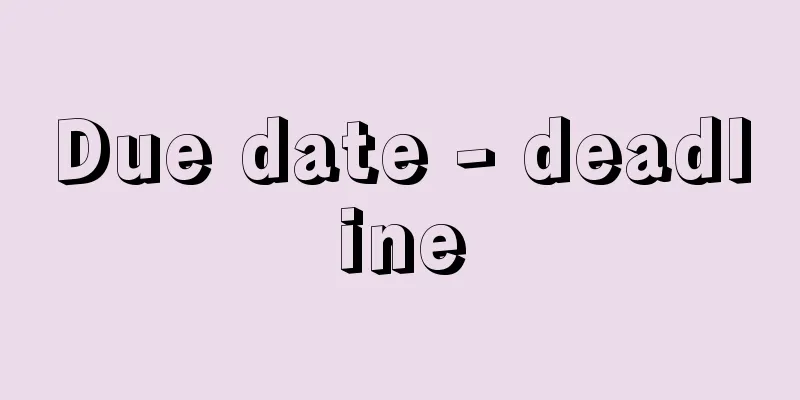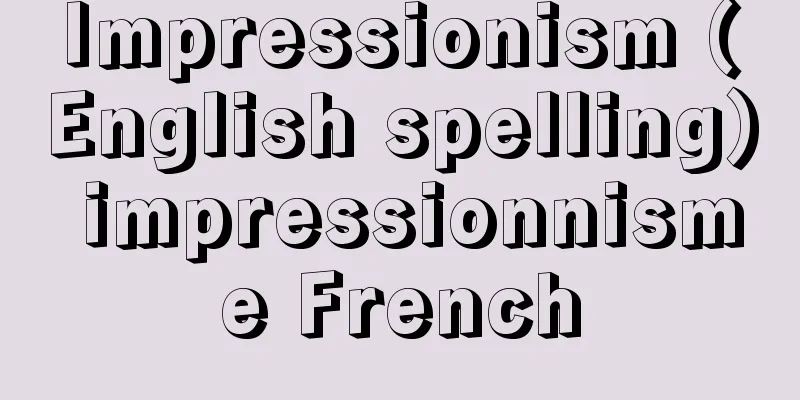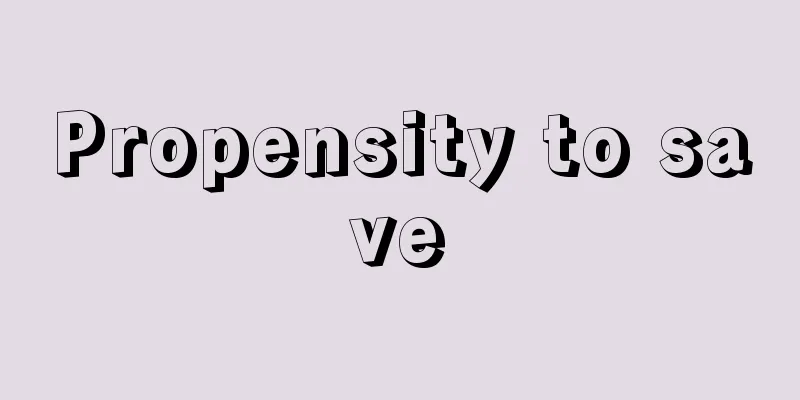Due date - deadline

|
Generally, it refers to a specific date and time (for example, Article 398-6, Paragraph 1 of the Civil Code and Article 34, Paragraph 2 of the Bills of Exchange Act), but in procedural law it means the time when the court, the parties, and other related parties meet at a specific place to carry out litigation acts. Dates in civil litigation include oral argument dates, pre-trial proceeding dates, evidence examination dates, judgment dates, and settlement dates, while in criminal litigation there are trial dates. [Yoshinobu Homma] Dates in civil casesA hearing date in a civil case is designated in advance by the presiding judge or the sole judge in charge of the case, either by petition or ex officio (Civil Procedure Act, Article 93), and the location, date, and start time must be clearly stated. A summons for a hearing is issued by the court clerk, who prepares a summons and serves it on the parties and other interested parties, and is given to those who are appearing in court for the case by notice or other method deemed appropriate (Civil Procedure Act, Article 94). A hearing begins when a case is summoned. Once a hearing date has been designated, it may be changed only if there is a significant reason (even if the first hearing date is agreed upon by the parties) (Civil Procedure Act, Article 93, Paragraph 3). If a hearing is opened but the scheduled matters cannot be completed, the hearing is postponed, and if the scheduled matters are not completed on that day, the hearing is continued. [Yoshinobu Homma] Dates in criminal proceedingsIn criminal proceedings, specific provisions have been established regarding the setting and changing of trial dates, the serving of summonses, etc., in order to ensure that defendants and others are prepared for trial (Article 273 and following of the Code of Criminal Procedure, Article 178-4 of the Rules of Criminal Procedure, etc.). [Yoshinobu Homma] [Reference] |Source: Shogakukan Encyclopedia Nipponica About Encyclopedia Nipponica Information | Legend |
|
一般には一定の日時をさす(たとえば民法398条の6第1項、手形法34条第2項)が、訴訟法上は裁判所、当事者その他の関係人が一定の場所に会合して訴訟行為をしあうための時間を意味する。民事訴訟における期日としては、口頭弁論期日、弁論準備手続期日、証拠調べ期日、判決言渡し期日、和解期日などが、刑事訴訟では公判期日などがある。 [本間義信] 民事訴訟における期日民事訴訟における期日は、申立てまたは職権により裁判長またはその事件を担当する単独裁判官があらかじめ指定するが(民事訴訟法93条)、その際、場所、年月日、開始時を明示しなければならない。期日の呼出しは、裁判所書記官が呼出状を作成して当事者その他の関係人に送達し、当該事件について裁判所へ出頭している者に対しては告知またはその他相当と認める方法によって行う(同法94条)。期日は事件の呼上げにより開始される。なお、一度指定された期日は、顕著な事由がある場合に限り(最初の期日は当事者の合意がある場合にも)変更が許される(同法93条3項)。期日を開いても予定の事項をすることができずに期日を閉じた場合には期日の延期、その日に予定した事項が完了しなかった場合には期日の続行が行われる。 [本間義信] 刑事訴訟における期日刑事訴訟では、公判期日の指定、変更、召喚状の送達などにつき、被告人などの訴訟準備を保障するため、とくに規定が置かれている(刑事訴訟法273条以下、刑事訴訟規則178条の4など)。 [本間義信] [参照項目] |出典 小学館 日本大百科全書(ニッポニカ)日本大百科全書(ニッポニカ)について 情報 | 凡例 |
Recommend
Awaji Island
Awaji Island is the largest island in the Seto In...
Ushiku Swamp
A swamp located in the northwest of Ryugasaki Cit...
Aira Tobikazura - Aira Tobikazura
→Mushroom vine Source : Heibonsha Encyclopedia Abo...
Osci people (English spelling)
A general term for the peoples who lived in centra...
Dermatology - Hifuka
It is a branch of clinical medicine that deals wi...
Beef steak - Beef steak (English spelling)
A type of beef dish made by grilling cuts of meat...
Undersea embankment - Kaititeibo
… fan cone — deep sea fan — deep sea cone — subma...
Nishiki
〘Noun〙① A fabric made by weaving a ground and a pa...
Ochiai [town] - Ochiai
A former town in Maniwa County in northern Okayama...
cut wound
...Thus, stab wounds to the chest or abdomen ofte...
Black mulberry
...All of these are used in combination with othe...
Spectacled guillemot (English name: Cepphus carbo; spectacled guillemot)
A seabird with a total length of 37 cm. In summer ...
deadpan mask
Just before his death at the age of 70 in 1966, C...
Planaria
A general term for flatworms belonging to the Plan...
Dressing table
A table with a vanity mirror and drawers. Appearin...









